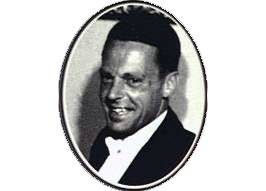 Jan Zwartendijk
Jan ZwartendijkWhen two Dutch students approached Jan Zwartendijk to ask him for visas that would allow them to enter Dutch territory in the colony of Curacao, he was not yet known by the knick-name of Mr. Philips Radio; he had not become a saviour yet. He still produced light bulbs and radios in the Lithuanian Philips Corp. branch office, but had recently accepted a job replacing the Dutch Consul in Kaunas.
The Jewish situation was distressing and Zwartendijk knew it ( Himmler was about to impose a decree in October 1940, forbidding Jewish emigration from the Polish territory occupied by the nazis). With the information provided by L.P.J. Decker, the Dutch Ambassador in Riga, Zwartendijk installed himself in one of the virtual voids of control of the nazi system, a move that was decisive to help those who were persecuted.
At first sight the process was simple: Zwartendijk signed a statement passing it on as a visa, to Curacao and other Dutch possessions in the West Indies. Decker had informed him that no visa was required to enter in those places, but only the governor’s permission was needed, although he rarely granted any. With the fake permit given by Zwartendijk the two refugees insured their departure from Lithuania whilst, at the same time, Sugihara, the Japanese Consul in Kaunas – also a key-man in this process- received the false passports and gave them visas for Japan which lasted only ten days. At that moment, with dutch and japanese visas, both students became foreigners and could obtain soviet visas to leave. The next step was the transiberian train and a ship to Japan.
Once again, both young people got in touch with Zwartendijk, conscious of the importance of those passports to guarantee the departure of other refugees from Lithuania.
A hundred thousand refugees in Vilna made their way to the office of the consulate. Thousands of passports were issued daily. Even though the Dutch Consul knew that the visas were false, the temporary visas to Japan continued to be issued to all Jews, who in turn sent them to their relatives who still waited anxiously in Vilna.
Zwartendijk issued approximately 2,000 visas in two weeks; the same number issued by Sugihara on his side. Even though neither of the two were professional diplomats, their combined efforts – which lasted a very short time- saved hundreds of lives. Before the war ended, refugees managed to travel to free countries.
However, a short while after its beginning the operation was demolished by the Soviets in the process of nationalizing the Lithuanian economy.
Zwartendijk returned to the Dutch territory occupied by the Germans and returned to his executive post in the Philips factory in Eindhoven, where he died at the age of 80, in 1979.
Notwithstanding, the saviour who had helped thousands to escape from the territory occupied by the nazis, had his name crystallized in the historical conscience as Mr. Philips Radio. And later on, in 1997, he became known as one of the ”Righteous among the Nations”, a title bestowed on him by the Israeli Holocaust Memorial.
The courage of many of our saviours lies in the fact that they were in the right place at the right moment.
Just like Jan Zwartendijk, the guardian who knew how to open the doors to salvation.
Sources:
Translation: María Pensavalle
